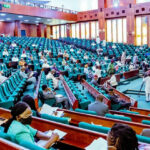
Ochefu noted that the flexibility in the operations of private universities has been responsible for the global recognition the institutions are getting.
He stated that the oldest private universities which had been in existence for 24 years have ranked globally better than the second generation of public universities established 50 years ago.
Ochefu said this at a workshop organised for University Advancement Officers in Abuja on Thursday.
He said, “If you look at our developmental history, the oldest public institutions are about 70 years old. The second-generation public universities will be 50 years old in 2025, whereas the private universities, the oldest of them, will be 25 years old in 2024.
“What we are saying is that in 24 years, many of them have accomplished global ranking levels that even many of the second-generation institutions are not going to accomplish.
“It is because of that flexibility and nimbleness in operations, being able to do things at the touch of a button, being able to take decisions, being able to latch up on opportunities, which the lack of autonomy in public institutions has stifled that type of development. It is in the law establishing the institutions that they are autonomous.”
He, however, said the removal of the institutions from the Integrated Payroll and Personnel Information System, would bring about the needed flexibility into the operations of the universities.
Ochefu said, “We applaud the minister for being able to convince the Federal Executive Council of our cry and then getting them to agree to remove it. And you see that it will give a breath of fresh air to the university system.
“When the Committee of Vice Chancellors met with the minister of education in August, we told him very clearly that IPPIS cannot exist within our Nigerian university system because of the way our operations are calibrated, IPPIS cannot cope. Our system is very fluid and very dynamic. It does not accommodate the type of flexibility that the system requires. And that is why we said this is antithetical to the way universities are operating.”









